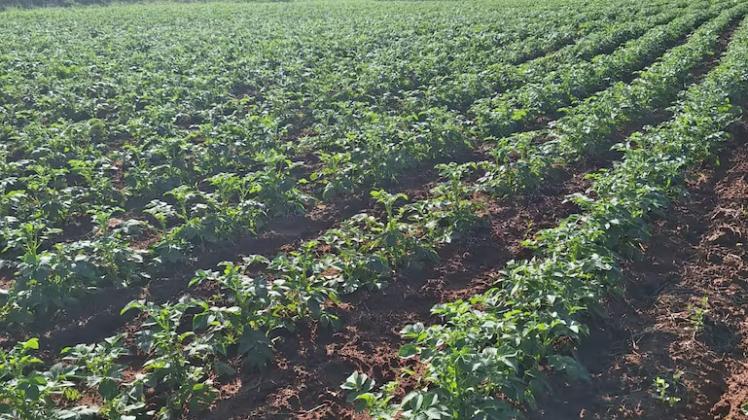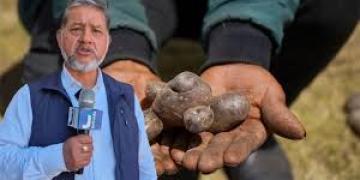Paraguay: Paraguarí, the birthplace of the national potato
The department of Paraguarí has established itself as the heart of potato production in the country. It accounts for 70% of all potato processing nationwide.

Eriberto Colmán, a representative of potato and onion producers in the department of Paraguarí, discussed with ABC Rural the challenges of one of the most important crops for family farming in his area.
Potato production has experienced sustained growth in recent years, and the department of Paraguarí, according to Colmán, accounts for 70% of the country’s potato processing. The remaining 30% is distributed among Guairá, Itapúa, San Pedro, Ñeembucú, Caazapá, Amambay, Central, Concepción, Cordillera, Caaguazú, Misiones, Alto Paraná, and Canindeyú. In 2024, a national harvest of 5 million kilos was achieved, and projections for this year are even more encouraging, he stated.
Paraguarí, a historic pioneer in potato cultivation, has between 600 and 700 hectares dedicated to this crop, directly benefiting 2,800 families. According to data from the Ministry of Agriculture and Livestock (MAG), average yields range between 20 and 40 tons per hectare.
"Potatoes are the most important cash crop in our area. They represent the mainstay of many farming families and boost the local economy," said Colmán.
Between tradition and modernization
Colmán explained that cultivation is carried out in two ways: a more traditional one, which uses animal traction and manual labor, closely linked to family farming; and a more technical one, which incorporates machinery such as seeders and harvesters. Both coexist, adapting to the producers’ capabilities and resources.
The price of potatoes per bag, both from Argentina and Brazil, is between G. 75,000 and G. 100,000 (20 to 23 kilos) and per kilo between G. 5,000 and G. 8,000, depending on the store.
Challenges and opportunities
According to the representative, one of the main challenges is extending the domestic market’s supply period. Currently, he commented, planting begins in June and harvest runs from October to December, which requires meeting a large portion of the demand—about 40,000 tons annually—with imports from Argentina and, to a lesser extent, Brazil.
To reverse this dependence, producers have begun testing plantings since March, seeking to expand local supply. "We are taking the first steps to improve our competitiveness. There is still much to do, but with planning and coordination, it is possible," he emphasized.
A story of recovery
Colmán explained that for years, potato cultivation was absent in the country. Starting in 2009, a sustained recovery process began, led almost exclusively by Paraguarí. Over time, the activity spread to other departments.
"The growth of potatoes in other areas of the country is recent. Efforts are being made, but further research is still needed to determine where they can be produced efficiently."
Beyond the numbers, potatoes represent much more for Paraguarí producers, according to the expert. "For many families, it’s their most important source of income of the year. Sometimes, it’s what saves the household budget."
Fuente:




